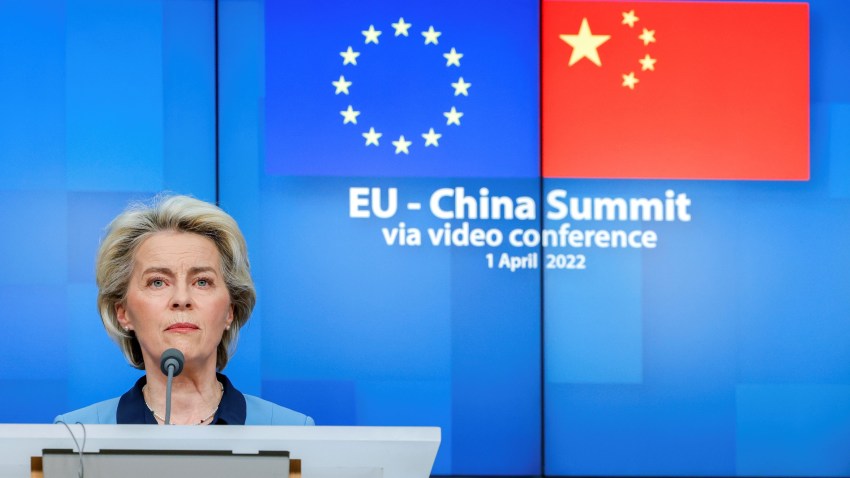As preparations fall into place for the first in-person summit in four years between European Union officials and their Chinese counterparts, the contrast between the two sides’ current tensions and the optimism that such meetings exuded a decade ago is stark. European Commission President Ursula von der Leyen and European Council President Charles Michel will face tense talks over trade and security when they meet with Chinese President Xi Jinping in early December. By contrast, in November 2013 their predecessors were welcomed in Beijing with declarations that the EU and China “are two major forces for safeguarding global peace ... and ‘two major civilizations’ for pushing for progress of mankind.” In the years since then, the gradual deterioration of relations has seen hopes for constructive partnership displaced by a miasma of mutual suspicion.
As distrust has worsened, European leaders have found it difficult to protect the EU’s Single Market and take the interests of allies in the Indo-Pacific into account without drifting into the same kind of open hostility that has pushed relations between Beijing and Washington close to the breaking point. As debates in the EU over how to handle China’s rise have converged with claims made by both the Trump and Biden administrations over the threat China supposedly poses to liberal democracies, the tendency to view the Chinese state as a disciplined juggernaut under the absolute control of the Chinese Communist Party has become increasingly prevalent in Brussels. Yet in absorbing these U.S. perspective toward China’s rise as a global power, European policymakers are ignoring weaknesses within China’s political economy that could also generate risks for the EU and its partners.
It is difficult to pin down the exact point at which the current lack of trust between the EU and China become so pervasive. Disputes over the textile and steel industries in the 1990s and 2000s, for instance, were hashed out amicably. By contrast, frustration with how Chinese firms successfully undercut their European competitors in the early 2010s to essentially corner the market in the production of solar panels has now led the commission to ratchet up protectionist measures to prevent a similar hollowing out of European electric vehicle and wind turbine production. And growing pressure to remove Chinese equipment entirely from the infrastructure needed for European 5G mobile networks marks a culmination of distrust toward China that did not seem inevitable as late as 2015.

